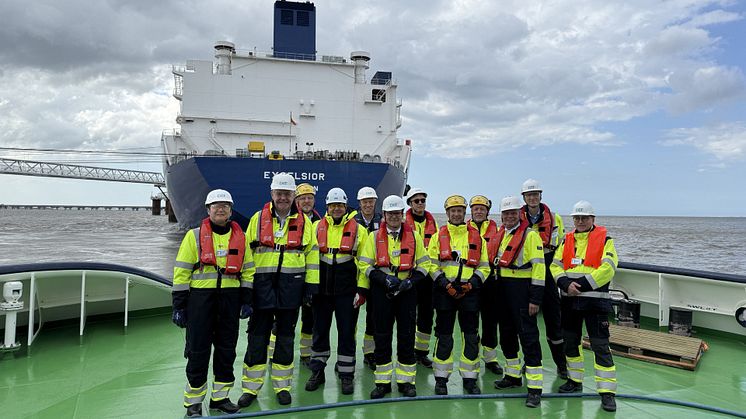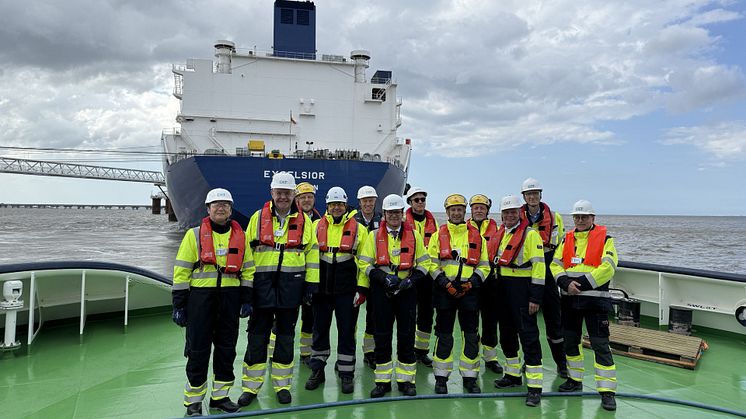
News -
Wilhelmshaven II Commissioned: LNG Remains Central to Security of Supply
At the end of May, the second floating LNG terminal (FSRU) in Wilhelmshaven was commissioned. This further expands Germany’s capacity to import liquefied natural gas (LNG) – an important step for securing the country’s energy supply. All existing terminals have fully marketed their capacities for the current year – a clear sign of the importance of this infrastructure amid geopolitical uncertainties, volatile markets, and limited storage levels.
Dr. Timm Kehler, CEO of Die Gas- und Wasserstoffwirtschaft, stated: “The commissioning of the second floating LNG terminal in Wilhelmshaven is a very welcome development. It shows that Germany is taking a forward-looking approach, creating security through diversification – and expanding its energy supply before shortages arise. This is a strong signal for security of supply and European partnership.”
The FSRU “Excelsior” is a 277-meter-long specialized vessel operated by shipping company Excelerate Energy and chartered by Deutsche Energy Terminal GmbH (DET).
The commissioning ceremony on May 26 was attended by Christian Meyer (Greens), Lower Saxony’s Minister for Environment, Energy and Climate Protection, and Grant Hendrik Tonne (SPD), the new Minister for Economy, Transport and Construction.
The terminal was connected to the grid after just two and a half years of planning and construction – significantly faster than comparable major projects. Project partners ENGIE Deutschland and Tree Energy Solutions (TES) implemented the project on behalf of DET in record time. Construction was supported by the Gasfin Group, which will also take over terminal operations. According to DET, the new terminal is expected to import around 1.9 billion cubic meters of gas into the grid this year – enough to heat approximately 1.5 million four-person households.
Germany now has four operational LNG terminals, providing access to global gas markets, securing additional import capacities, and strengthening the resilience of the energy system. Especially in an environment still shaped by geopolitical risks and a tight global LNG market, they are indispensable. LNG enables a flexible response to supply and demand fluctuations.
Currently, utilization of LNG terminals in Germany is relatively high: all capacities for the current year have been marketed. However, the importance of gas infrastructure such as LNG terminals is not measured by average utilization, but by its function in emergencies. They are part of critical infrastructure – just like hospitals or fire departments. For such facilities, full utilization is not the objective. Their value lies in being readily available when needed.
A current look at gas storage levels underscores this point: gas storage facilities in Germany are currently about 38 percent full. To ensure they can reliably fulfill their role in the coming winter, they must be steadily refilled over the summer months. LNG plays a central role in this effort.

